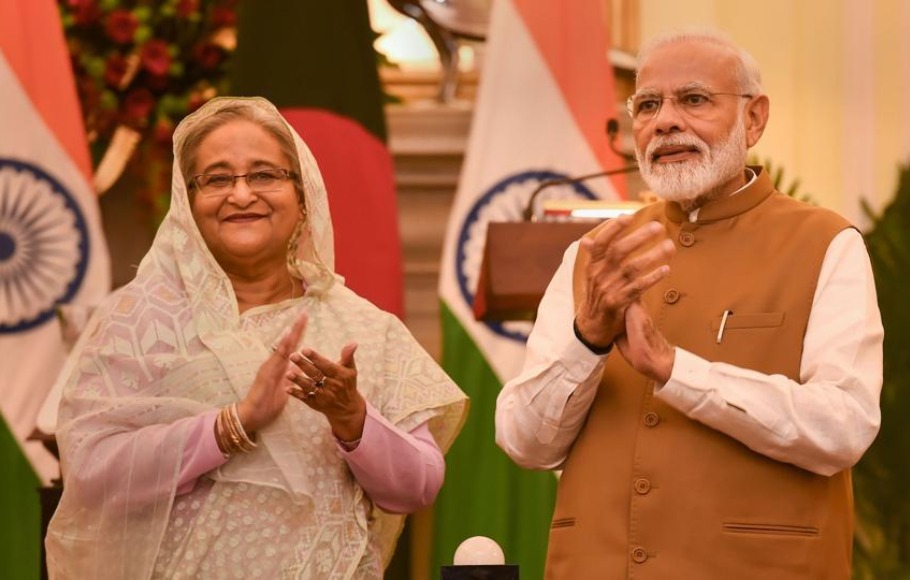
CAA not necessary, don’t understand why India did it, says Bangladesh PM
Bangladesh Prime Minister Sheikh Hasina has called the Citizenship Amendment Act unnecessary while terming it and the National Register of Citizens as “internal matters” of India. She also said the relationship between India and Bangladesh is currently at its best with cooperation in a “wide spectrum of areas”.

Bangladesh Prime Minister Sheikh Hasina has called the Citizenship Amendment Act (CAA) unnecessary while terming it and the National Register of Citizens (NRC) as “internal matters” of India. She also said the relationship between India and Bangladesh is currently at its best with cooperation in a “wide spectrum of areas”.
She made the remarks during an interview with the Gulf News. “We don’t understand why (the Indian government) did it. It was not necessary,” she said referring to CAA. Bangladesh, where 10.7% of the 161 million population is Hindu and 0.6% Buddhist, has denied any migration to India because of religious persecution, the paper said.
Hasina, who is in the UAE capital of Abu Dhabi, also said that there has been no recorded reverse migration from India. “No, there is no reverse migration from India. But within India, people are facing many problems,” she said. “(Still), it is an internal affair,” Hasina said.
“Bangladesh has always maintained that the CAA and NRC are internal matters of India,” Hasina said. “The Government of India, on their part, has also repeatedly maintained that the NRC is an internal exercise of India and Prime Minister (Narendra) Modi has in person assured me of the same during my visit to New Delhi in October 2019.”
Also read | India, Bangladesh sign seven pacts after Modi-Hasina talks
Her comments came weeks after Bangladesh Foreign Minister AK Abdul Momen said the CAA and the NRC are India’s “internal issues”, but voiced concern that any “uncertainty” in the country is likely to affect its neighbours.
According to the CAA, members of Hindu, Sikh, Buddhist, Jain, Parsi and Christian communities who have come from Pakistan, Bangladesh, and Afghanistan till December 31, 2014, following religious persecution there will get Indian citizenship. Protests are being held across India against the controversial law.
The NRC has been prepared to identify genuine Indian citizens living in Assam since March 24, 1971, or before, and identify illegal Bangladeshi migrants in the state. Out of 3.3 crore applicants, over 19 lakh people were excluded from the final NRC published on August 30.
(With inputs from agencies)
Also read | Rajasthan Assembly may bring in resolution against CAA

